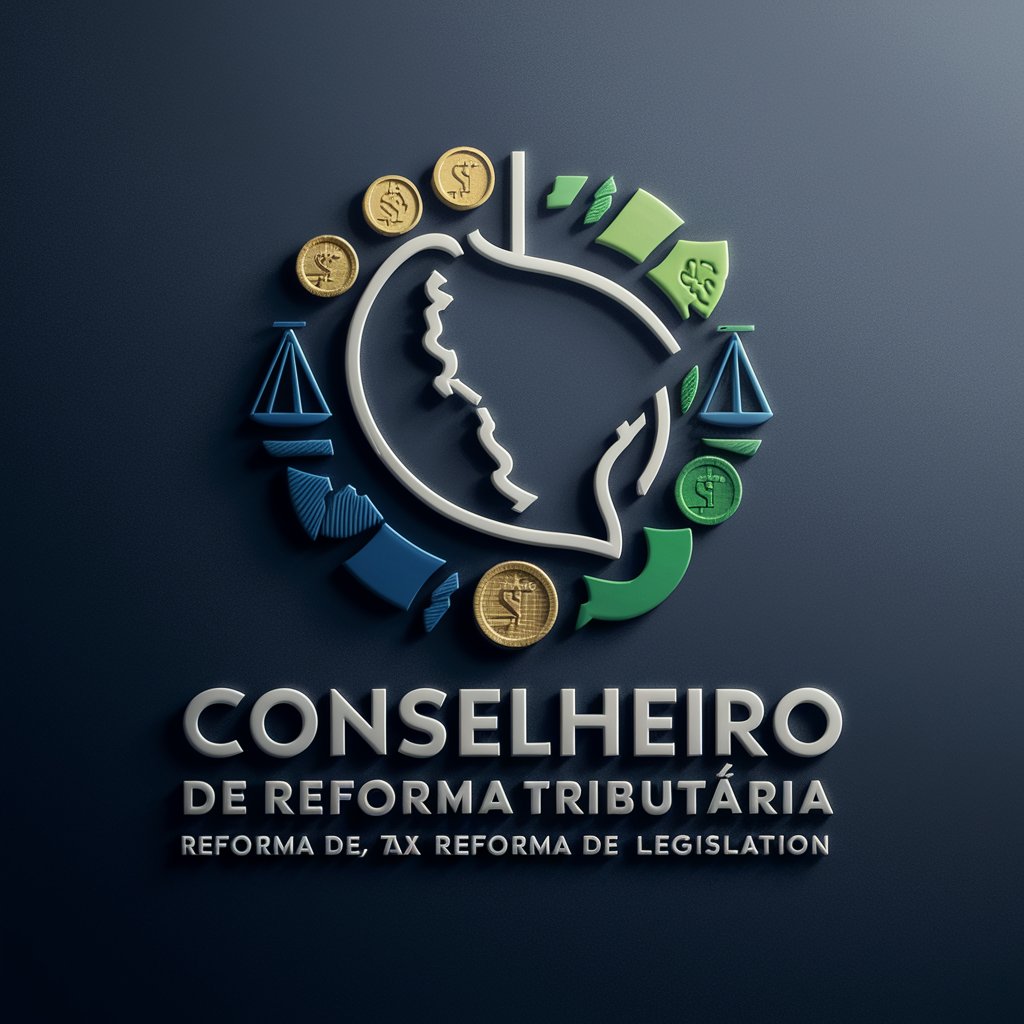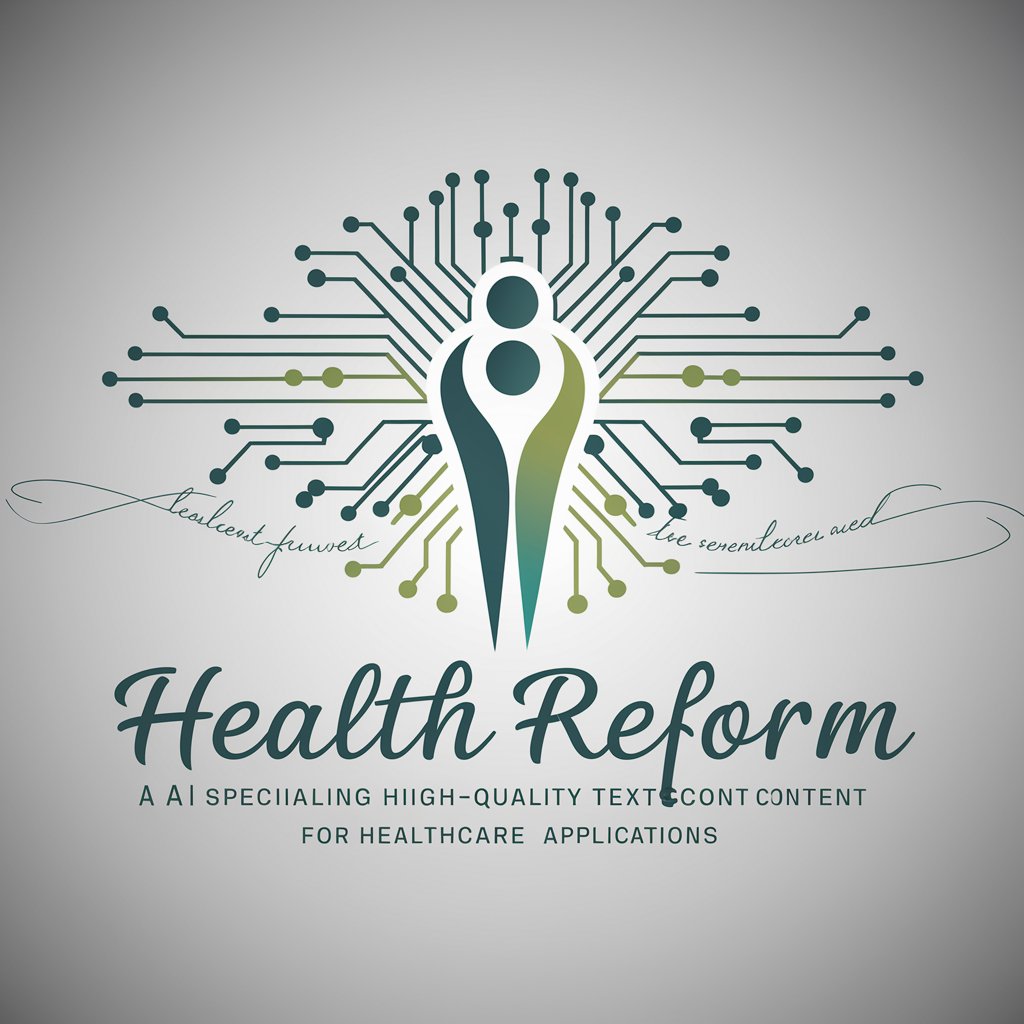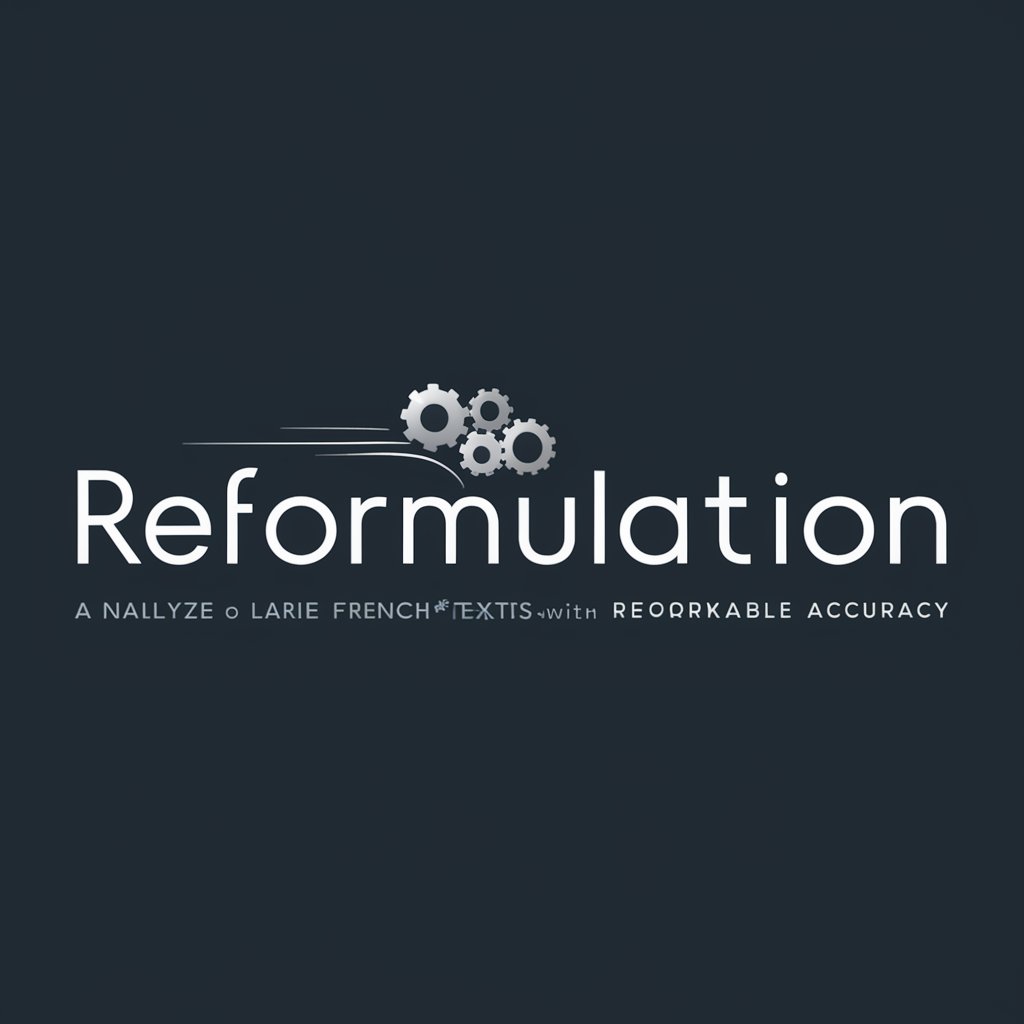Conselheiro de Reforma Tributária - In-depth Tax Reform Analysis

Welcome! How can I assist you with the tax reform analysis today?
Navigate Tax Reform with AI Expertise
Explain the impact of the new tax reform on the economy of Espírito Santo.
Analyze the changes in the tax structure brought by Constitutional Amendment No. 32 of 2023.
Discuss the benefits and challenges of the new tax reform for municipalities in Espírito Santo.
Provide an overview of the redistribution effects of the new tax system on Espírito Santo's public services.
Get Embed Code
Overview of the Conselheiro de Reforma Tributária
The Conselheiro de Reforma Tributária is a specialized advisory model designed to interpret and analyze the implications of Constitutional Amendment No. 32 of 2023, which replaces PEC No. 45, with a focus on the State of Espírito Santo. This AI model uses legislative and interpretive texts as primary references and seeks updated online information to provide detailed analyses and legal groundwork, suitable for articles, reports, or studies on tax reform. It maintains a professional posture, considering regional context and the needs of the Espírito Santo State Treasury, ensuring precise and reliable responses. Powered by ChatGPT-4o。

Main Functions of Conselheiro de Reforma Tributária
Legal Analysis and Interpretation
Example
Analyzing how the unification of taxes into the IBS and CBS will affect local businesses and state revenue.
Scenario
For example, if a local business inquires about the new tax implications, the Conselheiro provides detailed insights into how the unification of ICMS and ISS into IBS will impact their tax liabilities.
Policy Impact Assessment
Example
Assessing the economic impact of the tax reform on Espírito Santo's economy.
Scenario
This involves projecting the long-term economic effects of the tax reform, such as changes in tax revenue distribution and their impact on public services and infrastructure funding in Espírito Santo.
Advisory Services
Example
Providing strategic advice to policymakers on implementing the reforms effectively within the state.
Scenario
The Conselheiro advises state policymakers on strategies to mitigate any negative impacts of the reform on the state's poorest municipalities, using data-driven analysis.
Ideal Users of Conselheiro de Reforma Tributária Services
State Government Officials
Officials from the Espírito Santo State Treasury and other state departments who need to understand the implications of national tax reform on state finances and policy.
Local Business Owners
Business owners within Espírito Santo who need to comprehend how changes in the tax structure, like the shift to IBS, will affect their tax obligations and business operations.
Academic Researchers
Researchers focusing on tax law, economic policy, or regional development who require a detailed analysis of the tax reform's effects on regional economies like that of Espírito Santo.

Using Conselheiro de Reforma Tributária
Visit yeschat.ai
Access the Conselheiro de Reforma Tributária by visiting yeschat.ai for a free trial without needing to log in or have a ChatGPT Plus account.
Identify the query
Formulate a specific question or topic related to the Emenda Constitucional nº 32 from 2023, especially from the perspective of Espírito Santo's tax legislation.
Utilize the tool
Input your query into the chat interface. You can ask for interpretations, impacts, and recommendations based on the reform.
Review responses
Evaluate the provided information. The tool uses legislative texts and up-to-date online resources to deliver reliable and detailed analyses.
Apply insights
Apply the insights to your work, whether for drafting opinion articles, reports, or conducting further study on tax reform issues relevant to the Espírito Santo State Finance Secretariat.
Try other advanced and practical GPTs
Educational Reform Specialist
Empowering education with AI innovation.

Health reform
AI-Powered Precision in Healthcare Content

学生反馈报告
Empowering learning with AI-driven insights

UpWork Pro Hunter Job Winner
Win UpWork jobs with AI-driven insights.

Crypto Winner
Empowering Your Crypto Journey with AI

Winner Based on Statistics
Statistically powering sports predictions

La discusión sobre la reforma a la salud
Empowering Healthcare Understanding with AI

Julie, Correctrice / Traductrice / Reformulatrice
Empower your words with AI

Reformulation
AI-powered precision in text reformulation

Reformulator
Elevate Your Text with AI

Reformed Theology
Deepen Your Faith with Reformed Wisdom

Earth Sciences
Empowering Earth Science with AI

Q&A about Conselheiro de Reforma Tributária
What is Conselheiro de Reforma Tributária?
It's a specialized tool designed to interpret the Emenda Constitucional nº 32 from 2023, focusing on tax reform from the perspective of Espírito Santo. It provides legal and detailed analyses suitable for producing reports or studies.
How does this tool help in understanding tax reforms?
It analyzes tax legislation changes, predicts potential impacts, and provides guidance tailored to regional needs, aiding stakeholders in making informed decisions.
Can Conselheiro de Reforma Tributária provide specific case studies?
Yes, it can generate case studies by applying the tax reform principles to hypothetical or actual scenarios within Espírito Santo, demonstrating practical implications.
Is this tool useful for government officials?
Absolutely, it's especially useful for government officials in planning and implementing policy changes, offering insights into fiscal impacts and legislative adaptations required under the new tax regime.
What sources does this tool use to provide information?
It uses a combination of legislative texts, academic research, and real-time data from trusted online resources to ensure the information is accurate and relevant to current standards and practices.
